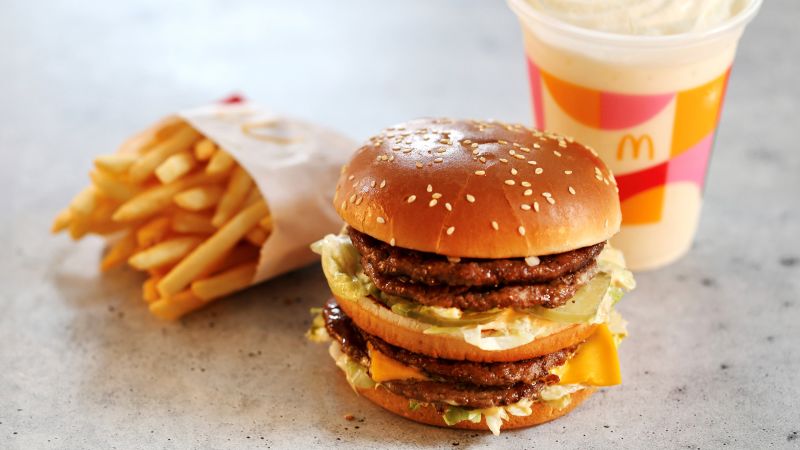Grocery prices stayed flat in May, after ticking down the month before. But menu prices, a source of frustration for budget-conscious consumers, are still going up — even as restaurants brag about their discounted meals.
Menu prices rose 0.4% at sit-down restaurants from April to May, adjusted for seasonal swings, according to inflation data released Wednesday by the Bureau of Labor Statistics. In that time prices ticked up 0.2% at limited service spots, which include fast casual and fast food joints.
The difference between grocery increases and menu price inflation was more pronounced for the full year. Grocery prices rose 1% in the 12 months through May. In that period, menu prices at full-service, or sit-down, restaurants rose 3.5%. They jumped 4.5% at limited-service restaurants, which include fast food and fast casual joints.
The increases, particularly in fast food prices, have caused customers to pull back on spending and complain online, eroding the sector’s reputation for affordability. Restaurant chains raise menu prices every year, but since the pandemic hikes have been coming in fast and furious. Executives noted that for a while, the higher prices didn’t scare people off. But customers finally snapped, leaving chains to reverse course and sometimes get defensive.
McDonald’s USA president Joe Erlinger recently said in an open letter that prices have risen about 21% over five years. That’s a bit less than inflation overall — not 100% as, he said, people may think, thanks to an analysis from FinanceBuzz. It recently found that McDonald’s prices have risen 100% since 2014. Still, he acknowledged that at some locations, Big Mac meals may be going for much higher. On TikTok, complaints of $3 McDonald’s hash browns and $16 meals have gone viral.
Chains from Burger King to KFC to Starbucks have also started touting menu bundles and deals in a bid to lure customers back. The deals, however, are temporary, designed to jumpstart sales in a competitive environment. They don’t change restaurant chain operators’ plans to keep raising prices.
Grocery prices, on the other hand, have moderated, a welcome reversal from months of increases that started with the pandemic, and were exacerbated by the war in Ukraine, extreme weather and companies taking the opportunity to pad prices, among other factors. In February, overall food prices remained flat for the first time since April 2023.
Some items have even gotten cheaper over the course of the year.
Apple prices plunged 13.2%, thanks largely to an abundant crop in the fall. Also in the produce aisle, potatoes declined 3.2%.
Ham slumped 5.4% and cheese dropped 3.4% (bread rose 1%, so your sandwich isn’t a total bargain). Coffee dropped 2.5% and milk fell 2.1%. Rice decreased 2%, and fish and seafood together dropped 1%.
Other items got more expensive this year, particularly in the meat aisle, due in part to a constrained supply of cattle and deadly wildfires in Texas. Uncooked beef roasts rose 6% and uncooked ground beef jumped 4.9%.
Hot dogs spiked 7.3% and bacon went up 6.9%. Poultry rose 1.2%. Eggs, which last year notched huge increases, went up by 3%.
While grocery prices increased overall for the year, they stayed flat from April to May. In that time, bacon jumped 1.7%, bread went up 1.1%, and uncooked ground beef and chicken each rose 1%. Other prices slumped: Milk dropped 1.3% and rice fell 1.2%. Together, fresh vegetables fell 0.4%, as did eggs.
Read the full article here
